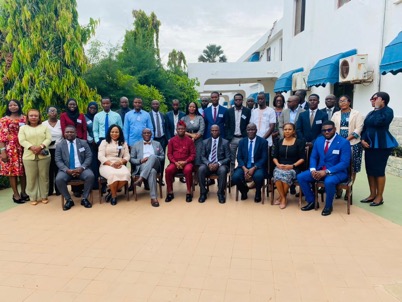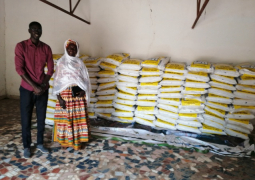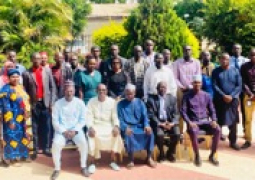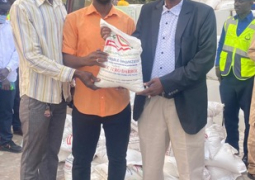
The training currently underway at a local hotel in Kotu, seeks to expose participants to several courses including update on anti-money laundering, combating financing terrorism, economic and financial crimes; international initiatives in prevention and combating money laundering and other financial crimes.
It will also equip participants with the necessary knowledge to be able to know some of the effects of money laundering on the financial systems to be able to design anti-money laundering compliance systems for enforcement in financial institutions as well as put in place risk based approach in implementing anti- money laundering and combating financing of terrorism programmes; procedures, monitoring tools and investigative techniques for combating money laundering.
Representing the director general of WAIFEM, Amadou S. Koora, director of Financial Sector and Payment Systems Department, acknowledged that money laundering and other financial crimes including financing of terrorism are significant global issues that pose severe threat to the integrity of financial systems and national security.
"The West African region is not immune to these threats with various criminal networks exploiting the financial systems to launder illicit gain and finance terrorism." he said.
He reminded that with strong mobility of funds and rapid development of new payment technologies, the quantum of financial and economic crimes has been on the increase and poses a threat to countries.
Addressing these challenges, he calls for concerted effort from all stakeholders including financial institutions, regulatory bodies, law enforcement agencies and policy makers.
"In this regard, the desire to ensure that officials of the relevant agencies are armed with competencies to combat this menace in the region underlies WAIFEM's capacity building intervention." he said.
He thanked the governor, management and staff of the Central Bank of The Gambia for their hospitality and providing excellent logistics.
He equally thanked the Inter- Governmental Action Group against Money Laundering in West Africa (GIABA) for its technical collaboration and sponsoring some resources persons.
Representing the Governor of Central Bank of The Gambia, Baboucarr Cham, director of Human Resources at the bank, revealed that the growth of organised crime and its negative impact on financial systems is alarming, as criminals employ more sophisticated methods to exploit vulnerabilities in financial systems.
"Therefore, as regulators, policy makers and enforcers, we must resolve to counter these threats, by continuously enhancing our knowledge and skills to effective combat all forms of financial crimes." he said.
He observed that money laundering has far-reaching adverse consequences on the integrity and soundness of financial systems as well as the broader economy.
Cham while commenting on the effects of money laundering, maintained that it could distort economic stability, with the potential to misinform policy decisions.
He added that it can also create unfair competition in the sense that legitimate businesses struggle to compete with those funded by illicit proceeds of crime and it has the potential of undermining investor confidence, due to the perceived risks of operating in a tainted financial environment.
"It could have adverse macroeconomic consequences such as massive funds flow in and out of the country, leading to economic instability, depreciation of local currency and challenges of capital flight." he said.
In her vote of thanks, Patricia Adamu, assistant director for WAIFEM, expressed gratitude to participants for leaving their busy schedules to attend the event.





